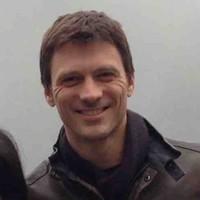
Jon Rask is a Scientist in the Office of the Center Director at NASA Ames Research Center. His research focuses on enabling human and robotic space exploration, and the search for life on other planets and moons. Jon has characterized the toxicity and abrasiveness of Apollo lunar dust specimens and supported development of novel brick-like biocomposite technologies made from lunar and Mars regolith simulants. Jon has also developed and tested life science hardware and biological experiments that flew aboard the Space Shuttle and the International Space Station. Rask has performed experiment operations aboard the NASA C9B parabolic aircraft and been a test subject in hypergravity experiments aboard NASA Ames centrifuge facilities. Rask has served as a Principal Investigator for a human study conducted on the Human Performance Centrifuge, was a Co-Investigator for the University of North Dakota Space Studies’ Inflatable Lunar and Mars Habitat Module, and served as the Director of the NASA Space Life Sciences Training Program.
Throughout his career, Jon has also been involved in desert, hydrothermal, and polar field work that has included expeditions to the Mars Desert Research Station, the Mojave desert, the Empty Quarter Desert of the Middle East, the Pilbara of Western Australia, the Atacama Desert of Chile, Hot Springs in Idaho and New Zealand, the relic glacial landforms and badlands of North Dakota, and the Arctic on Svalbard. Rask has also carried out investigations in Antarctica, where he has tested prototype space suit technology, operated the Amundsen-Scott South Pole Station’s Food Growth Chamber, and explored the polar plateau.
Rask recently completed the NASA Ames Project Excellence Program in Life Detection, and currently serves as the Director of Astrobiology Operations at the NASA Astrobiology Institute.

Jared Broddrick is a NASA postdoctoral fellow in the Exobiology Branch at NASA Ames Research Center, applying systems biology techniques to questions of interest to the astrobiology community. In this position Jared has combined field site exploration, next-generation sequencing and computational biology to characterize the metabolism of microbial communities in Yellowstone National Park. Jared is also leading an initiative to integrate systems-level analysis into origins of life research and the habitability of planetary bodies inside and outside our solar system. Additionally, he supports the NASA Astrobiology intern program by leading expeditions into Lassen National Park where high school students learn about astrobiology and perform biological and geochemical experiments in the field.
In addition to his research at NASA, Jared is a Lieutenant Colonel in the Air Force Reserves where he provides intelligence support to space operations at Vandenberg Air Force Base.
Jared has a Ph.D. in Systems Biology from the University of California San Diego, a Master’s degree in Biochemistry from UC San Diego and he is a Distinguished Graduate from the United States Air Force Academy where he earned a Bachelor’s, also in Biochemistry.
